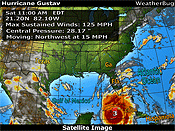Florida Common Core Standards Implementation Costs
 Thursday, March 7, 2013 at 07:58PM
Thursday, March 7, 2013 at 07:58PM Florida Department of Education, State Board of Education, and Elected Officials:
The following article shows the costs to implement the Common Core Standards (CCS) in Florida. These costs are taken from a longer report that I completed on 10.15.12 and a comprehensive report prepared by the Pioneer Institute. I will send my report to you separately.
I realize that Florida is committed to the Common Core Standards. You adopted the CCS and you have received $906 million in competitive awards.
House Bill 377 requires CCS implementation in the 2016-2017 school year. Florida could use some extra time to fully comprehend the ramifications of adopting CCS; the implementation expense for CCS will be immense! After careful analysis, Florida might choose to drop the Common Core Standards.
As the following article explains, there is some urgency to the decision. If Florida delays its decision, it could incur huge up-front, one-time costs of $687 million (67 % of the total cost) to implement CCS.
Most states entered into the RTTT and CCS without solid estimates on CCS implementation. As many of the states are moving ahead with CCS implementation, they are finding that the costs are quite high. Some states are experiencing "buyer's remorse," and are dropping CCS.
I would strongly suggest that Florida take a hard look at this issue. Because Florida gave up very good standards to embrace CCS, the state could revert back to those standards.
Thank you for educating the students in Florida.
Henry W. Burke
E-mail: hwburke@cox.net
_________________________________________________
Florida Common Core Implementation Costs
by Henry W. Burke
3.06.13
Even though Florida was a big winner in the Race to the Top (RTTT) competition, the state will spend more than it received to implement the Common Core Standards (CCS).
It will cost Florida $118 million (net amount) to implement the Common Core Standards (CCS). Where will Florida find $118 million to install the mediocre Common Core Standards?
I will call your attention to an excellent Pioneer Institute report, "National Cost of Aligning States and Localities to the Common Core Standards," dated February 2012 (PI report) and my report, "States' Taxpayers Cannot Afford Common Core Standards," by Henry W. Burke, dated 10.15.12 (Burke report). These are the links to the reports:
http://www.pioneerinstitute.org/pdf/120222_CCSSICost.pdf
http://educationviews.org/states-taxpayers-cannot-afford-common-core-standards/
I also wrote a companion report applicable to the states that did not adopt the Common Core Standards, "Non-Common Core States Will Save Millions of Dollars," by Henry W. Burke, 10.18.12:
http://educationviews.org/non-common-core-states-will-save-millions-of-dollars/
Florida gave up very good state standards to adopt the inferior Common Core Standards. According to a 2010 Fordham Institute report that compared the state standards with the Common Core Standards, Florida had "Too Close to Call" English Language Arts (ELA) standards and Mathematics standards.
I encourage you to realistically evaluate the costs versus the benefits for the State of Florida. I will focus only on the cost of implementing the Common Core Standards (CCS) versus the dollar awards received from the federal government.
I thought I would offer a little insight into the CCS implementation costs. This explanation includes the Pioneer report figures and my assumptions. Obviously, I cannot speak for the Pioneer Institute nor its partners in the white paper, Accountability Works and Pacific Research Institute. These are strictly my thoughts, assumptions and calculations.
The Pioneer Institute report identified four cost categories for CCS implementation. The categories are: Testing, Professional Development, Textbooks, and Technology. Pioneer calculated the total CCS implementation cost over a 7-year time period.
The PI report included bar graphs (without dollar figures) for each state in Professional Development, Textbooks, and Technology. The Appendices to the PI report showed exact dollar figures for each state in only the Textbooks and Technology categories. This is the link to the Pioneer Institute Appendices:
http://www.accountabilityworks.org/photos/Appendices.Common_Core_Cost.AW.pdf
Consequently, I had to derive figures for Testing and Professional Development for each of the 46 states. My goal was to duplicate the Pioneer figures as closely as possible. My nationwide totals for the four categories agree quite closely with the Pioneer Institute report.
A. Florida CCS Loss
The State of Florida submitted proposals to the U.S. Department of Education (USDOE) for Phase 1 and Phase 2 of the Race to the Top (RTTT) program and received a rank of No. 4 in Phase 1 and a rank of No. 4 in Phase 2 of that competition. The 12 "winning" states under Phase 1 and Phase 2 of RTTT received a total of $3.941 billion. Florida was a big winner in Phase 2, with an RTTT award of $700.000 million.
In subsequent competitions, Florida received $205,838,204 ($205.838 million) for competitive stimulus awards. This brings Florida's total awards to $905.838 million.
In the Burke Table 1, CCS Loss Per State, the CCS Total Cost for Florida is $1,024.163 million; and the federal competitive award total is $905.838 million. The difference is $118.325 million.
[$1,024.163 million - $905.838 million = $118.325 million]
This means Florida will have to find $118 million to pay for the implementation expense of CCS.
B. Florida CCS Cost
In the Burke Table 2, CCS Cost Per Student, we can see that Florida has a CCS Cost per Student of $389. This is slightly higher than the average cost per student of $379 (average cost for the 46 CCS states).
Table 3, Total CCS Cost, lists the components making up the Total CCS Cost of $1,024.163 million ($1.024 billion) for Florida. Testing cost is $78.184 million; Professional Development cost is $354.970 million; Textbook cost is $155.810 million; and Technology cost is $435.199 million.
In round numbers, Florida will spend $78 million on Testing, $355 million on Professional Development, $156 million on Textbooks, and $435 million on Technology. The Total CCS Cost for Florida will be $1,024 million ($1.024 billion).
Explanation of Figures
1. Testing
a. Nationwide CCS Testing Cost
Testing is a function of the number of students tested. Table 5 in my report shows the Total Nationwide Cost for the 46 CCS states. My Table 5 duplicates Pioneer Figure 2B (on page 2 of the PI report). Figure 2B shows a Total Testing Cost of $1,240,641,297.
Table 6 (Burke report) lists the number of students and teachers in each of the 46 states; the total for the 46 states is 41,805,062 students. I obtained all of the numbers in Table 6 from the Pioneer report Appendices (NCES: 2009 - 2010 School Year).
When I divided $1,240,641,297 by 41,805,062 students, I obtained a factor of $29.67681993 per student. This Testing cost factor was applied to each of the 46 states to get the Testing cost for each state. My Total Testing Cost of $1,240.641 million agrees with the Pioneer Figure 2B number.
b. Florida CCS Testing Cost
Florida has a total student enrollment of 2,634,522 students (Burke Table 6). When I multiplied 2,634,522 students by the $29.6768 factor per student, I obtained $78.184 million.
[2,634,522 students x $29.67681993 per student = $78,184,235]
2. Professional Development
The purpose of Professional Development is to train the teachers on the new Common Core academic standards. Professional Development is a function of the number of teachers that must be trained. Pioneer used a Professional Development cost of $1,931 per teacher.
Florida has 183,827 teachers (Burke Table 6). When I multiplied 183,827 teachers by $1,931 per teacher, I obtained $354.970 million.
[183,827 teachers x $1,931 per teacher = $354,969,937]
[Incidentally, my calculations produced a Professional Development Cost for California of $605.938 million. The PI report bar graph showed the number $606 million for California. This verifies that my calculation assumptions and methodology are correct.]
3. Textbooks
I obtained the Textbook cost for Florida directly from the Pioneer Institute Appendix. The Table in the Appendix showed a Total Textbook Cost for Florida of $155,809,850 ($155.810 million).
The PI Appendix listed the following numbers for Textbooks and Instructional Materials:
Florida Textbook Cost
(Millions of Dollars)
|
Grade |
Textbook Cost ($ Millions) |
|
K |
14.036 |
|
1 |
13.194 |
|
2 |
10.858 |
|
3 |
11.638 |
|
4 |
10.034 |
|
5 |
10.016 |
|
6 |
11.586 |
|
Subtotal -- K - 6 |
81.362 |
|
|
|
|
7 |
12.067 |
|
8 |
11.986 |
|
9 |
13.677 |
|
Subtotal -- 7 - 9 |
37.730 |
|
|
|
|
10 |
12.324 |
|
11 |
13.096 |
|
12 |
11.298 |
|
Subtotal -- 10 - 12 |
36.718 |
|
|
|
|
Total -- K - 12 |
155.810 |
4. Technology
I obtained the Technology cost for Florida directly from the Pioneer Appendix. The PI Appendix lists the Total Technology Cost for Florida as $435,199,238 ($435.199 million).
The PI Appendix provides the following information:
Florida Technology Cost
(Millions of Dollars)
|
Description |
Technology Cost ($ Millions) |
Total Technology Cost ($ Millions) |
|
One-Time Costs |
176.220 |
176.220 |
|
Year 1 Operations |
22.341 |
22.341 |
|
Years 2 - 7 Operations (Annual) |
39.4397 |
-- |
|
Total for 6 Years (Years 2 - 7) |
236.638 |
236.638 |
|
Total Technology Cost |
|
435.199 |
C. Urgency of Decision
We know that the total cost to implement CCS in Florida will be $1,024.163 million ($1.024 billion), but we have not said anything about the timing. The timing for the expenditures is extremely important!
A sizeable portion of the total CCS implementation cost is spent early in the process. In the Pioneer Report Figure 2B, two-thirds (66 %) of the Total Cost falls into the up-front, one-time cost period. Pioneer shows a one-time cost of $10,522,885,028; the Total Cost is $15,835,121,347. When I divide these two numbers, I get 66 %.
For Florida, the figures are as follows:
Timing of Florida CCS Costs
(Millions of Dollars)
|
Cost Category |
Up-Front, One-Time Cost ($ Millions) |
Years 1 - 7 Cost ($ Millions) |
Total Cost -- Up-Front & for 7 Years ($ Millions) |
|
Testing |
-- |
78.184 |
78.184 |
|
Professional Development |
354.970 |
-- |
354.970 |
|
Textbooks |
155.810 |
-- |
155.810 |
|
Technology |
176.220 |
258.979 |
435.199 |
|
Total Cost |
687.000 |
337.163 |
1,024.163 |
|
Percentage of Total |
67 % |
33 % |
100 % |
As this table shows, 67 % of the total cost ($687.000 million) is incurred as an up-front, one-time cost. If Florida has any interest in dropping the CCS, the state should act very soon. Much of the CCS implementation expense (67 %) hits very early in the process. If the state delays the decision to drop CCS, it could waste $687 million on a system that it is not going to use. The decision is urgent!
Please contact me if you would like copies of my two reports.
============================
Bio for Henry W. Burke
Henry Burke is a Civil Engineer with a B.S.C.E. and M.S.C.E. He has been a Registered Professional Engineer (P.E.) for 37 years and has worked as a Civil Engineer in construction for over 40 years.
Mr. Burke had a successful 27-year career with a large construction contractor.
Henry Burke serves as a full-time volunteer to oversee various construction projects. He has written numerous articles on education, engineering, construction, politics, taxes, and the economy.
Henry W. Burke
E-mail: hwburke@cox.net









